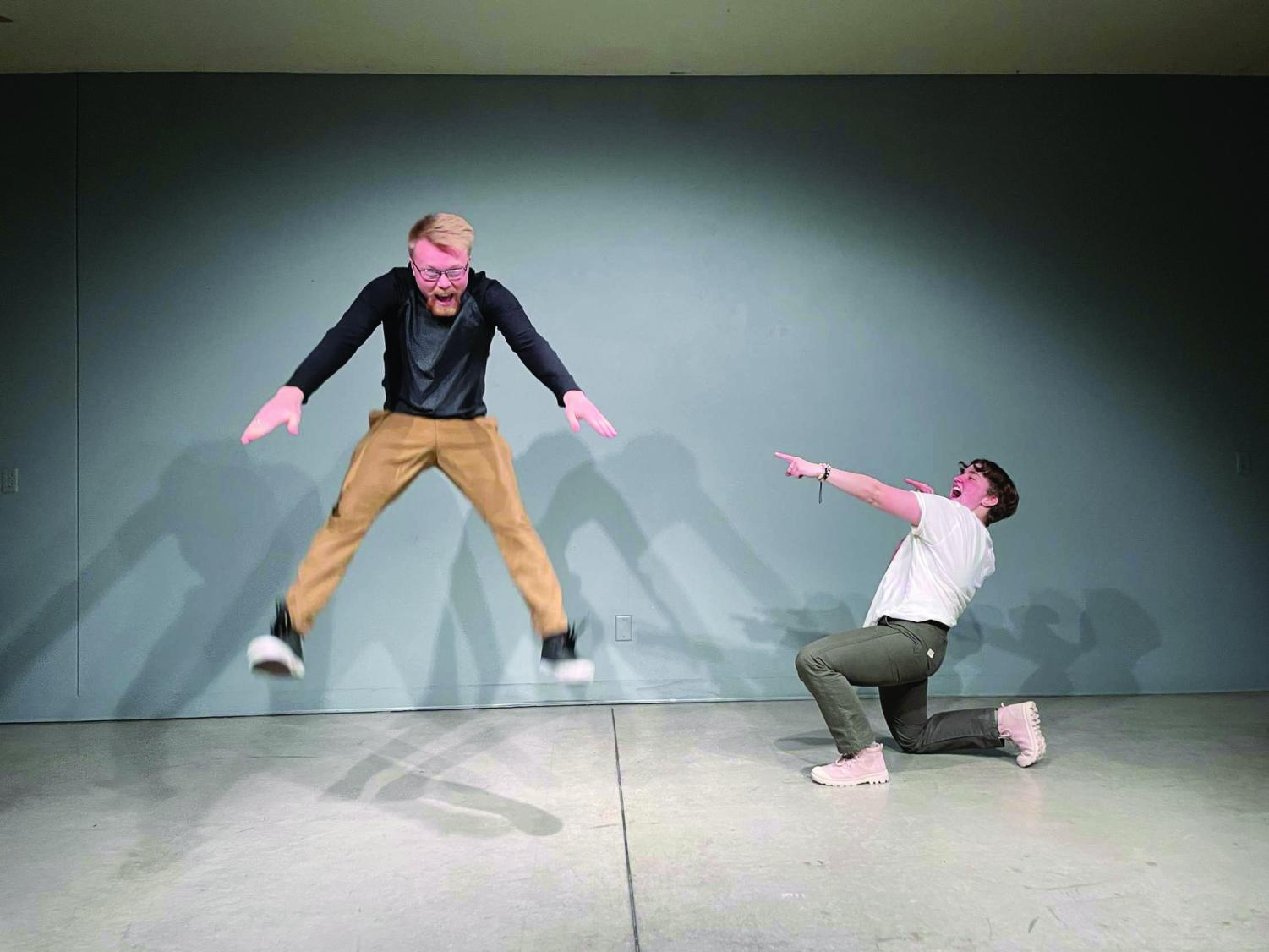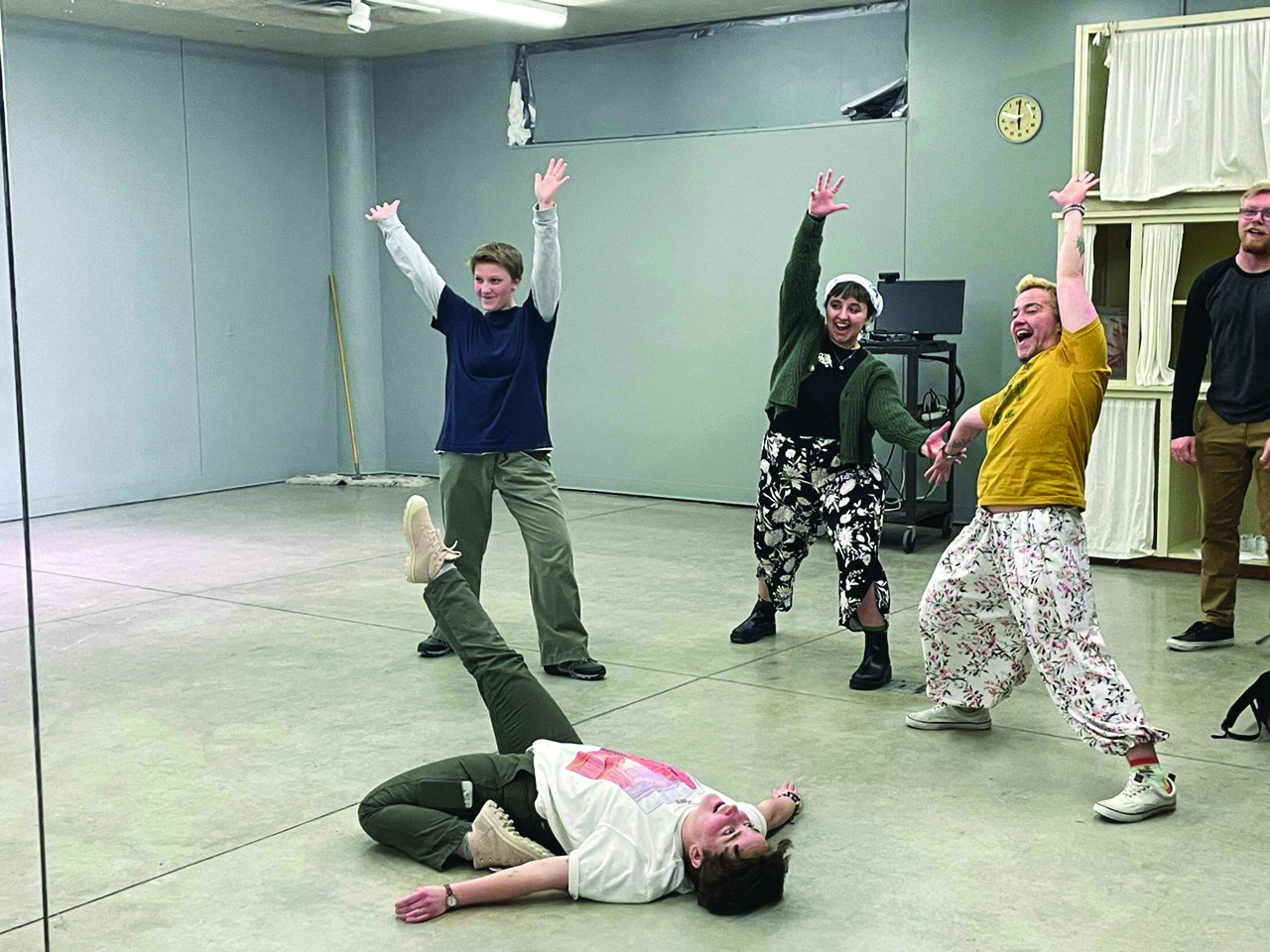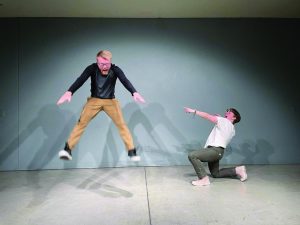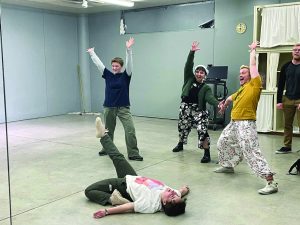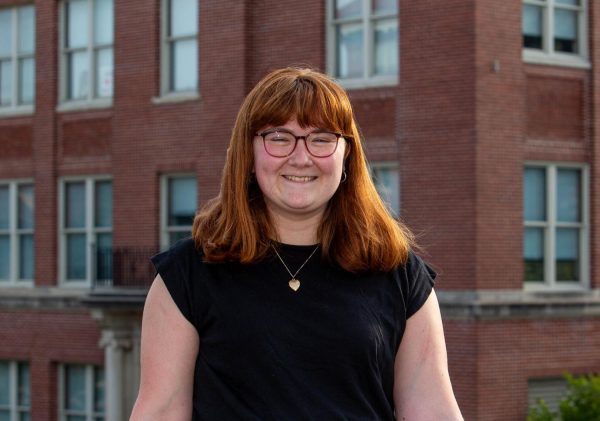Bringing drag to the masses
Mar 26, 2023
UNI’s drag community sets out to create a space of acceptance and accessibility
In anticipation of UNI Proud and UNI Gender and Sexuality Services’ (GSS) annual Dragaganza drag show, GSS has been working to make drag accessible and empowering for all.
UNI GSS has hosted two workshops in the weeks leading up to Dragaganza in order to help performers feel prepared and supported for their performances.
Archer Trip, an employee with UNI GSS, led the workshops.
“I, as a GSS worker, decided to create these drag performance workshops because I was also a new drag performer and I said, ‘I don’t know how I would do this.’ That was the reason why I went into it, but I also thought, ‘why not?’” he said.
“These are just workshops for anyone who wants to learn how to sew, to be on stage in any way, how to dance, sing, wear makeup, literally any of these skills you can find in drag,” he said. “It’s really just a bonus point that we’re also having our Dragaganza event on April 8, and our performers can have that space and opportunity to practice, give and take advice and have space to brainstorm ideas.”
Making drag accessible
The first workshop, offered in late February, focused on sewing basics and costume creation. It was put on in collaboration with TriipleThread, a local queer-owned small business run by UNI students.
When it came to costuming advice, one of the workshop leaders and owner of TriipleThread Nic Trip said that the focus was really on accessibility. “We focused primarily on how to create your own costuming on a budget easily, especially for first time performers to allow for a more accessible space that also allows more community building within the college campus,” she said.
The second workshop offered advice in “Drag 101,” including choreography, stage presence, makeup, wigs, songs and costuming. It took place on Friday, March 24.
Between the two workshops, about 20 people were in attendance, which is a fraction of the total number of performers signed up for Dragaganza. The small numbers in attendance allowed for individualized critiques and one-on-one support for performers.
Aside from providing resources for drag performers, the leaders wanted to embrace the idea that drag can be for anyone.
“Drag is a performance that exaggerates gender stereotypes, and you don’t have to be transgender,” said one student, who asked not to be identified in the story. “You don’t have to be gay to exaggerate gender stereotypes. Gender stereotypes just exist.
“You can be a cis woman who exaggerates feminine characteristics through makeup, performance, through wigs, through costuming,” they continued. “You could be a gay man exaggerating feminine characteristics through the exact same way. It doesn’t matter. It’s just for fun. It’s poking fun at gender stereotypes, and it’s just fun to dance.”
Nic Trip added, “Some of us are cis, some of us are straight, some of us are whatever. You don’t have to be the gayest of the gay to perform. You don’t have to be a professional. You could just be someone that likes to get up and shake your tush a little.”
Maddie Kizer, a first time performer who attended the workshops, emphasized the effect the community aspect of the workshops had on her experience.
“I’ve never done a drag show. I’ve never actually been to one either, but I definitely have been watching RuPaul’s Drag Race for years, so that was the only exposure I had to it,” she said.
“I think it’s important to be able to come into the community like this and have that space to just be like, I’m a beginner. I appreciate the art. I want to be able to take part in it in some way, even though it’s probably not going to be perfect.”
“A lot of people are new to this, and we’re all just trying to have a good time and just celebrate something that, especially right now, is really vulnerable,” she said.
Recent legislation
That vulnerability Kizer referenced is a result of a recent wave of anti-drag and anti-LGBTQ legislation proposed in states across the U.S. On March 2, 2023, Tennessee Gov. Bill Lee signed Tennessee Senate Bill 3 into law. The legislation bans “adult cabaret performance” on public property and in the presence of minors in Tennessee.
The bill lists specific types of performances it bans, including “male or female impersonators who provide entertainment that appeals to a prurient interest.” Many LGBTQ activists are concerned that the law will be used to restrict and criminalize drag shows, whether sexualized or not. The law will take effect on April 1 in Tennessee, and violators will face misdemeanor charges for first-time offenses followed by felony charges for repeat offenders.
A similar bill was introduced in Iowa’s senate on Feb. 21. Senate File 348 proposed a ban on minors attending drag shows. The bill died in early March, but was just one of many legislative propositions related to the LGBTQ community.
On March 22, Iowa Gov. Kim Reynolds signed Senate File 538 into law, placing a ban on gender-affirming care for transgender minors. Transgender minors currently receiving gender-affirming care will have six months to move off of it.
Senate File 482 also passed, “prohibiting persons from entering single and multiple occupancy restrooms or changing areas and other facilities in elementary and secondary schools that do not correspond with the person’s biological sex.”
Organizers believe that despite the restrictive legislation, especially on gender-non-conforming individuals, UNI’s drag community will persist.
While Archer Trip is an employee of UNI GSS, he provided the following responses outside of company time. His comments do not reflect the opinions or political stances of UNI GSS.
“The reason why we’re doing this drag workshop as well as Dragaganza is not because of, or not even in spite of these legislations. We already planned it a year ago, so why wouldn’t we?” Archer Trip said.
“I think, for me, it’s a symbol of the fact that we are already here, we are already queer, so we’re still going to just keep doing what we’re doing, no matter what,” they said.
Nic Trip added, “I think this parallels the fact that we’ve continued being queer, continued being within the community and continued doing all the other things we’re doing for the past hundreds of years, for the past decades, specifically when there are different bills being passed,” she said.
“For those of us that can and have the ability to come out and show up and be out loud and proud, we should be used as an example to say, ‘Hey, we’re not going anywhere.’ And for those of us that can take that stance, we’ll take that stance and we’ll continue to take that,” she said.
This year’s Dragaganza drag show, with the theme, “TikTok Killed the Video Star,” will take place on Saturday, April 8 at 7 p.m. in Maucker Union. The event is a collaboration between UNI GSS, UNI Proud and the UNI Campus Activities Board (CAB). Attendance is free, and all tips given to performers will be donated to One Iowa, a nonprofit supporting LGBTQ equality in Iowa.
At the end of the day, organizers say, the event is meant to be a space for everyone.
“The point here is that we’re all one community,” Nic Trip said. “The people performing are not all specifically within the [LGBTQ] community, and some people in the audience are or are not. We are all one community. This is a way to show that our campus as a whole is still going to continue doing this, regardless of how some people may want to push us out.”


